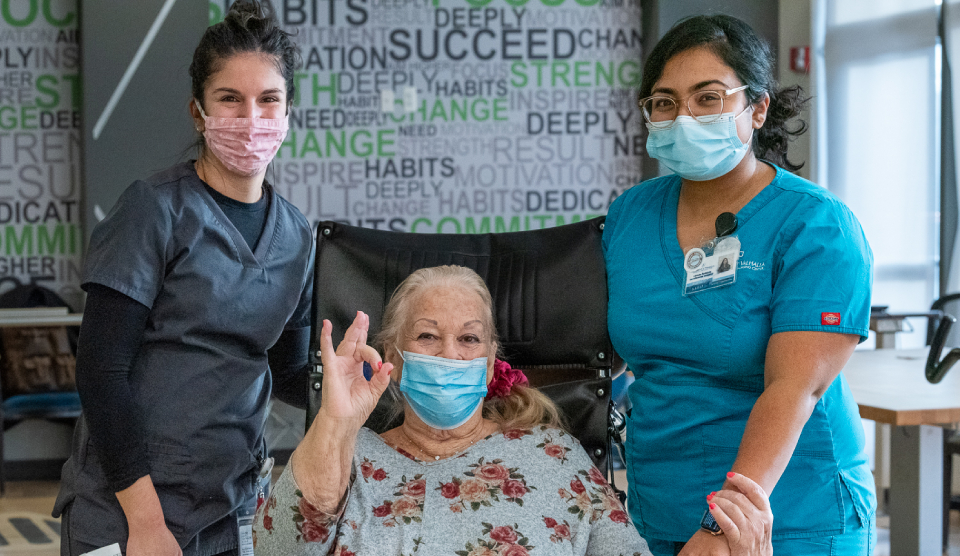Patients Age: 84
Admission Date: 10/25/2017
Admitted From: White Plains Hospital
Discharge Date: 11/27/2017
Discharged To: Home
Length of Stay: Four Weeks
Reason for Stay: Fluid Overload, Muscle Weakness, Hypertension, Obesity, Chronic Obstructive Pulmonary Disease, Chronic Kidney Disease, Obstructive Sleep Apnea and type 2 diabetes.
Details of Experience:
Prior to her hospitalization, Mrs. D. lived at home requiring assistance with some of her activities of daily living and could only ambulate with contact support and her need for increase oxygen was dramatically increasing. To put it simply, Mrs. D. was not in great shape. She was physically weak, short of breath and her spirits were beginning to reflect the poor health she was in. Mrs. D.’s primary medical challenge is physical weakness due to shortness of breath. The hospital helped stabilize her breathing, but recommended short term rehab to help her regain her strength and improve her breathing.
After touring The Grove and meeting with the staff, Mrs. D.’s family felt confident that The Grove can help provide Mrs. D. with the rehabilitation, medical service and support she desperately needed. When Mrs. D. first arrived, she required a therapist to support her while walking and couldn’t climb any steps. She had a lot of pain in her knees and had extremely low endurance. Her first phase of therapy was focused on respiratory exercises and muscle strengthening. The nursing staff and social work department ensured that Mrs. D. was comfortable and well cared for, providing her with the level of service our staff is committed to.
Mrs. D.’s early therapeutic results proved that with effort and time, getting better and stronger is possible. Mrs. D. followed her routine exercises strictly, both in and out of sessions. As her lungs got stronger and her breathing improved, her need for external oxygen became less and her endurance increased – allowing her to participate in therapy sessions for longer and perform more rigorous exercises. Her lower body muscles became stronger, which in effect decreased the pain and pressure in her knees, Mrs. D. began walking for longer distances and transfer independently and the smile on her face was noticeably wider.
The day of discharge was a huge celebration and victory for Mrs. D. She was going back home walking with only the assistance of a walker, independent with her daily activities and completely off oxygen. She proudly walked to the nurse’s station with a box of chocolate in her hand, thanking each team member individually, assuring us all that “I’ll come back to visit and celebrate.”


